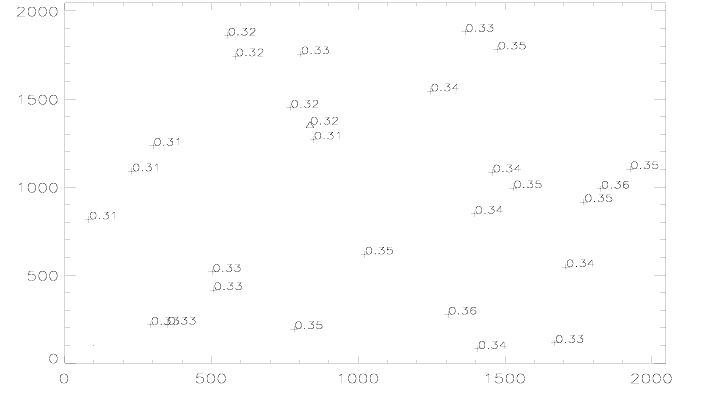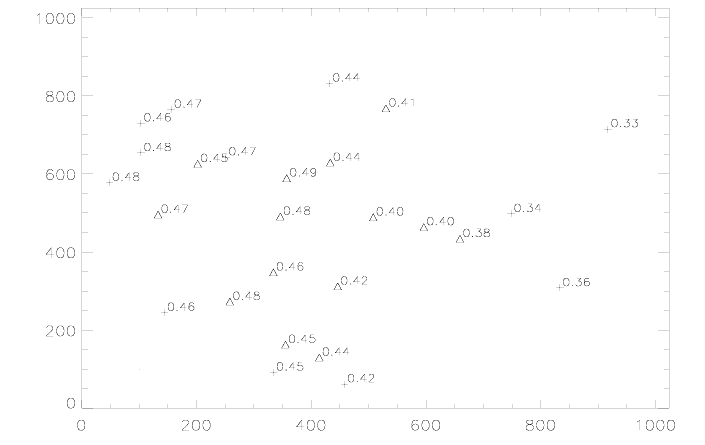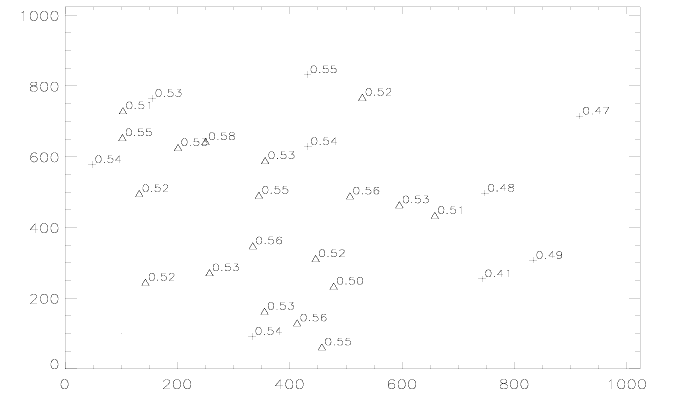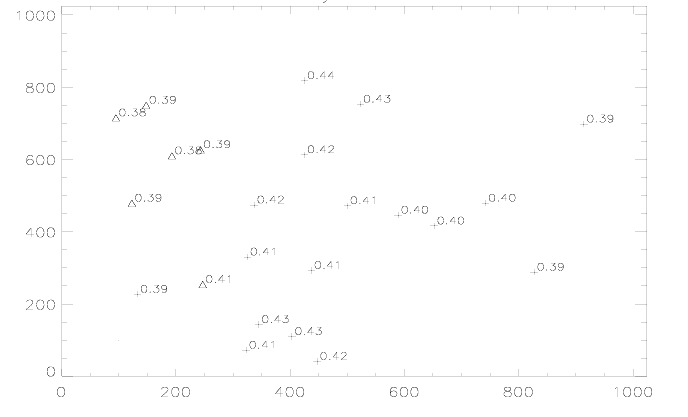


14.7 Spatial Dependence of the STIS PSF
The STIS PSF varies across the field of view. Observations of Omega Cen and NGC 6681 have been used to study the PSF variations, and confirm the behavior expected from the optics. One way of characterizing the spatial variation is to measure the flux in a fixed aperture. Figure 14.94: through Figure 14.97: show the fraction of the flux enclosed within a 0.05 arcsec radius aperture. This parameter is relatively constant for the CCD, but is more pronounced for the MAMA detectors. For example, the 0.05" encircled energy varies from 47% to 31% across the NUV-MAMA with the F25CN182 filter.
See Bowers (1997 HST Calibration Workshop) for a discussion of HST "breathing" effects on the PSF.
Figure 14.94: Fraction of the total flux of a point source that passes through an aperture of 0.05" radius for the CCD and a clear aperture (50CCD). The data were obtained from observations of the Omega Cen star cluster. Crosses represent stars that have little or no contamination from other sources, while triangles are sources that were marginally contaminated in the region outside the PSF core. No objects were used that had contamination within 0.15" of the center.
Figure 14.95: Fraction of the total flux of a point source that passes through an aperture of 0.05" radius for the NUV-MAMA with the F25CN182. The data were obtained from observations of the star cluster NGC 6881. Crosses represent stars that have little or no contamination from other sources, while triangles are sources that were marginally contaminated in the region outside the PSF core. No objects were used that had contamination within 0.15" of the center.
Figure 14.96: Fraction of the total flux of a point source that passes through an aperture of 0.05" radius for the NUV-MAMA with the F25CN270 filter. The data were obtained from observations of the star cluster NGC 6881. Crosses represent stars that have little or no contamination from other sources, while triangles are sources that were marginally contaminated in the region outside the PSF core. No objects were used that had contamination within 0.15" of the center.
Figure 14.97: Fraction of the total flux of a point source that passes through an aperture of 0.05" radius for the FUV-MAMA with the F25QTZ filter. The data were obtained from observations of the star cluster NGC 6881. Crosses represent stars that have little or no contamination from other sources, while triangles are sources that were marginally contaminated in the region outside the PSF core. No objects were used that had contamination within 0.15" of the center.


Space Telescope Science Institute
http://www.stsci.edu
Voice: (410) 338-1082
help@stsci.edu
|









